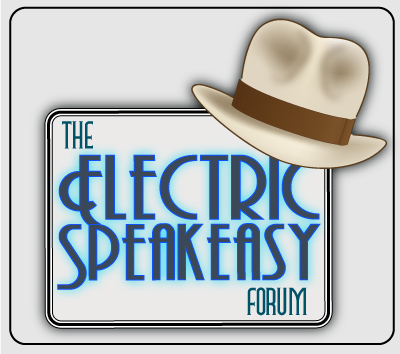
The Military-Industrial Complex: From Eisenhower's Farewell Address To The Biden Inauguration.
Jason Cousineau and Eric Fisk | January 29th, 2021
Jason Cousineau and Eric Fisk fulfill a promise made to listeners years ago; to do an episode about President Dwight D. Eisenhower's Farewell Address on the 60th Anniversary of that occasion that finally arrived earlier this month.
The conversation about President Eisenhower's final speech from The White House is in context with President Kennedy's Inauguration days afterward and the meaning of the phrase "Deep State," and how it's evolved in the past five a half decades. We also discuss how the shadow of The Deep State looms over everything in the realm of divisive politics, including the swearing-in of the new President, Joe Biden.
Jay and Eric also debate whether or not The President of The United States is "Your President" or "My President," and the dangers of deifying candidates and elected officials.
Subscribe to The Fedora Chronicles Stitcher, Spotify, Overcast, SoundCloud, iTunes, and PlayerFM
You can support the show by visiting our Zazzle page - exactly 12.5 percent of every purchase goes to keeping this and other shows on The Fedora Chronicles Network on the air. Or, become a Patreon – click the Patreon link and for a mere dollar a month you’ll get early access to the podcasts, updates on what we’re working on, and so much more. Thanks for all your support in advance, and thank you to our listeners who have already contributed. With that said – Thanks for listening, enjoy the show!
Show Notes and Links
Transcript of President Dwight D. Eisenhower's Farewell Address (1961)

"This conjunction of an immense military establishment and a large arms industry is new in the American experience. The total influence-economic, political, even spiritual-is felt in every city, every state house, every office of the Federal government. We recognize the imperative need for this development. Yet we must not fail to comprehend its grave implications. Our toil, resources and livelihood are all involved; so is the very structure of our society.
In the councils of government, we must guard against the acquisition of unwarranted influence, whether sought or unsought, by the military-industrial complex. The potential for the disastrous rise of misplaced power exists and will persist.
We must never let the weight of this combination endanger our liberties or democratic processes. We should take nothing for granted only an alert and knowledgeable citizenry can compel the proper meshing of huge industrial and military machinery of defense with our peaceful methods and goals, so that security and liberty may prosper together."
NPR: "Ike's Warning Of Military Expansion, 50 Years Later," January 17, 2011
On Jan. 17, 1961, President Dwight Eisenhower gave the nation a dire warning about what he described as a threat to democratic government. He called it the military-industrial complex, a formidable union of defense contractors and the armed forces. Eisenhower, a retired five-star Army general, the man who led the allies on D-Day, made the remarks in his farewell speech from the White House. As NPR's Tom Bowman tells Morning Edition co-host Renee Montagne, Eisenhower used the speech to warn about "the immense military establishment" that had joined with "a large arms industry."
JFK Library: The Inauguration of John F. Kennedy | In the 1960 campaign, John F. Kennedy pledged "to get this country moving again," and offered voters a new generation of leadership. He challenged his fellow citizens to join him in the struggle for freedom in the perilous years of the Cold War. On Inauguration Day, January 20, 1961, nearly one million people in the nation's capital braved the subfreezing temperatures to catch a glimpse of the new President they had elected. The hard issues of the day---the Communist threat, a nuclear arms race, racial unrest, and economic distress---awaited the President and the nation. Assuming office in the midst of the Cold War, JFK understood that his inaugural address would have to instill confidence at home and respect abroad. He believed that democracy thrives only when citizens contribute their talents to the common good, and that it is up to leaders to inspire citizens to acts of sacrifice. And when he exhorted people to "ask not what your country can do for you," he appealed to the noblest instincts, voicing a message that Americans were eager to hear.
Kennedy’s inaugural address reflected his core beliefs and life experience. He was a war veteran—a combat hero. He had read the great speeches of the ages, and believed in the power of words. He thought that a democracy thrives only when citizens contribute their talents to the common good, and that it is up to leaders to inspire citizens to acts of sacrifice. And when he exhorted Americans to “Ask not, what your country can do for you,” he appealed to their noblest instincts, voicing a message that Americans were eager to hear. He lifted the spirits of his listeners, even as he confronted the grim reality of the nuclear age. The speech was a sensation.
President John F. Kennedy's Inaugural Address | January 20, 1961








